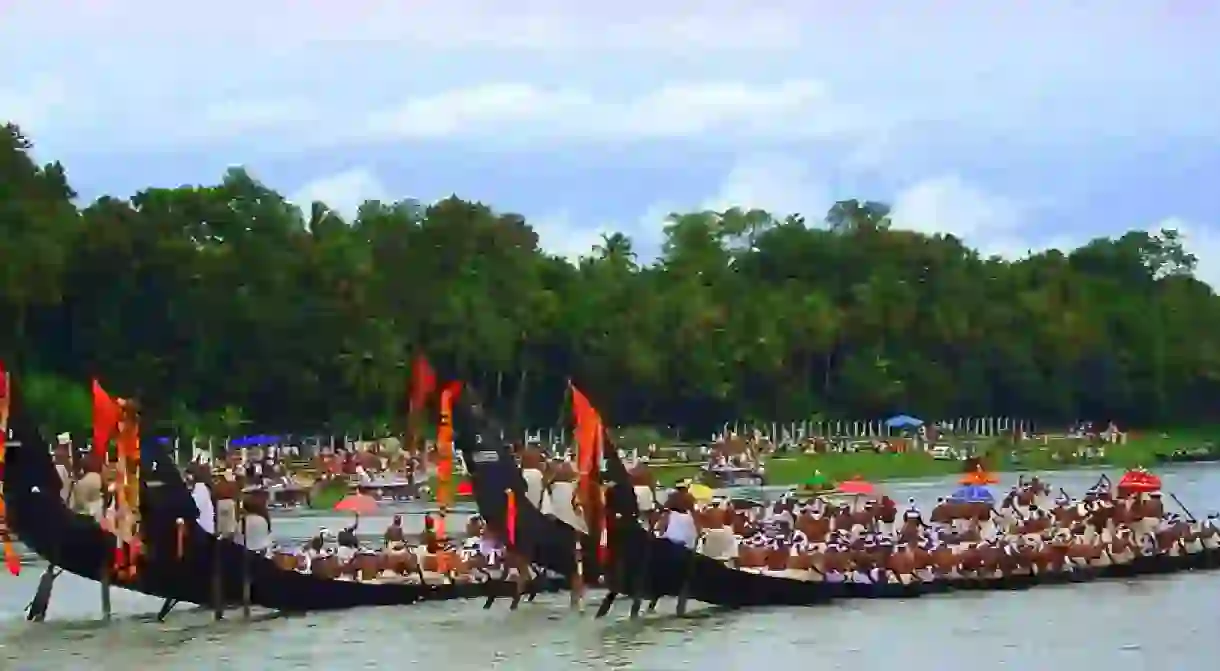The History Of Onam In 1 Minute

Onam, as the primary cultural festival of the state of Kerala, is a huge deal to Malayalis worldwide. Spanning over ten days, the festival gives a unique opportunity to celebrate the rich history and tradition of Kerala, India, to support its farmers and indigenous businesses and to reconnect with family and friends. The festivities are endless, with boat races, song and dance competitions and extravagant decorations taking place.
In essence, Onam celebrates the start of the harvest season. Following the monsoon season (July-August), the festival serves as the harbinger of Spring. However, to common folk the festival’s significance is mostly tied to a legend revolving around Mahabali, a mythical King who ruled ancient Kerala. Malayalis believe that Onam marks his annual visit to their homes.
The story of Mahabali is penned in the Bhagavata Purana, one of the most important ancient Hindu sacred texts. As the modern version of the story goes, Mahabali or Maveli ruled Kerala during its golden age when the state saw prosperity and happiness, surpassing social class and religious divides. Numerous folk songs spell out how the king was just, wise and extremely generous. The state saw no corruption or crime, to the extent that people never locked the doors to their homes nor did the state face poverty, sorrow or disease.

However, Mahabali’s popularity and hold on the people didn’t fare well with Hindu gods due to many reasons, including that he belongs to the Asura (demon) dynasty by birth. So the gods designated Vishnu, the primary deity in Hinduism, to disguise himself as a poor Brahmin man and defeat Mahabali. Vishnu approached Mahabali, who never left visitors leave empty handed, and requested some land, specifically three paces of land as measured by his own footsteps. When the unsuspecting king agreed, Vishnu in the form of the small Brahmin expanded to cosmic proportions and covered the skies and earth with the first two of his three steps. The king soon understood that this wasn’t a common Brahmin man, rather an avatar of Vishnu. He also realized there was nothing he could offer for Vishnu’s third step without risking the lives of his people and so offered his own head. However, he requested that he be granted to visit his kingdom once every year. With pookalams (floral carpet-like arrangements), song and dance, adorning new clothes called Onakkodi, and arranging extravagant feasts, the residents of Kerala greet the mythical Mahabali and celebrate the history and culture of their state.













